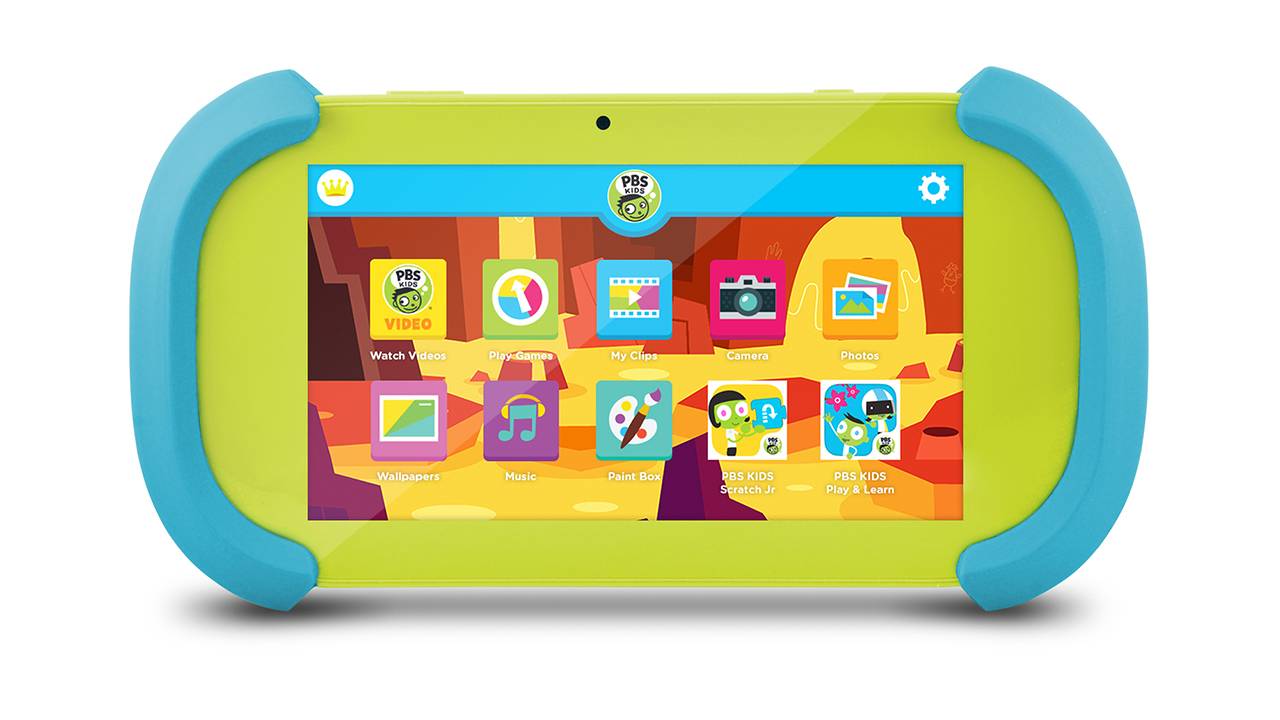 NEWS
NEWS
 NEWS
NEWS
 NEWS
NEWS
The days of simple electronic toys like the Speak & Spell are long gone, and these days children know their way around a touchscreen before they even learn to speak. So it should come as no surprise that tablet makers are starting to develop products with younger and younger audiences in mind.
This week, the Public Broadcasting Service announced that it will be releasing an inexpensive Android tablet aimed at children that comes with a host of PBS Kids content pre-loaded on the device.
The new tablet, which PBS is calling the Playtime Pad, is made by electronics manufacturer Ematic and will retail for $79.99. The device comes with 16GB of storage, which will be pre-loaded with a wide range of PBS Kids content, including 25 educational games and 120 video clips and music videos. It also has access to hundreds of hours of television shows through the PBS Kids Video App.
“PBS KIDS is continuously looking for new ways to engage children with media that sparks their curiosity and fosters a love of learning, supporting our mission to help all kids reach their potential,” said Lesli Rotenberg, senior vice president and general manager for children’s media and education at PBS. “We know that families lead busy, on-the-go lives, so we are excited to offer our high-quality, innovative content on an affordable tablet that helps kids learn and explore with their favorite PBS KIDS characters, whenever and wherever.”
PBS says the Playtime Pad will launch on Nov. 6, and the table will be available at Best Buy stores, as well as online at bestbuy.com, walmart.com and shop.pbskids.org.
Smartphones have become almost omnipresent these days, and today’s children are growing up in a world where the App Store is king. That is why companies like LeapFrog Enterprises Inc., which is best known for its educational electronic toys that use proprietary game cartridges, have started making their own Android tablets and downloadable apps as well.
Although there are plenty of educational apps aimed at children available for iOS, Apple’s devices themselves tend to be a bit too pricey to be a dedicated children’s toy, which is why companies like PBS and LeapFrog seem to favor Android. Cheaper devices also leaves more money to be spent on apps and in-app purchases, but over the last few years, there has been some concern by both the mobile industry and government regulators on how app makers should be allowed to market micro-transactions to minors, if at all.
A few major companies have also run into legal trouble for allowing children to make virtual purchases a bit too easily, including Google, which in 2014 was ordered by the Federal Trade Commission to pay $19 million to a number of customers whose children made purchases without permission.
“For millions of American families, smartphones and tablets have become a part of their daily lives,” FTC chairwoman Edith Ramirez said at the time. “As more Americans embrace mobile technology, it’s vital to remind companies that time-tested consumer protections still apply, including that consumers should not be charged for purchases they did not authorize.”
THANK YOU